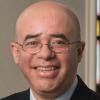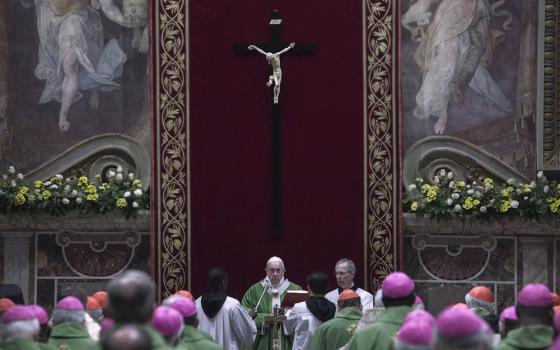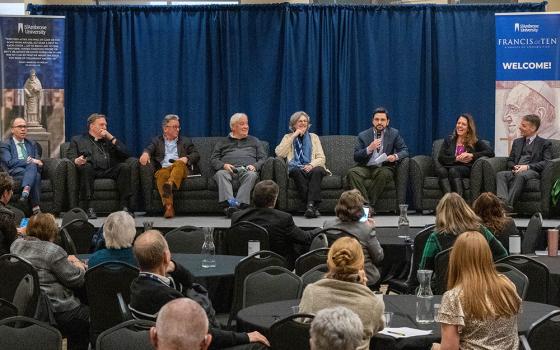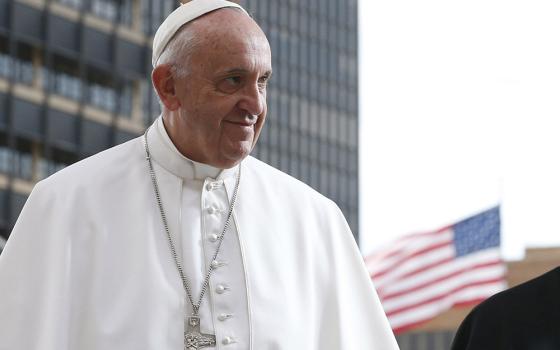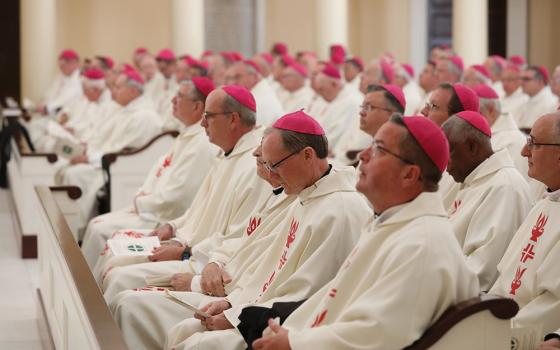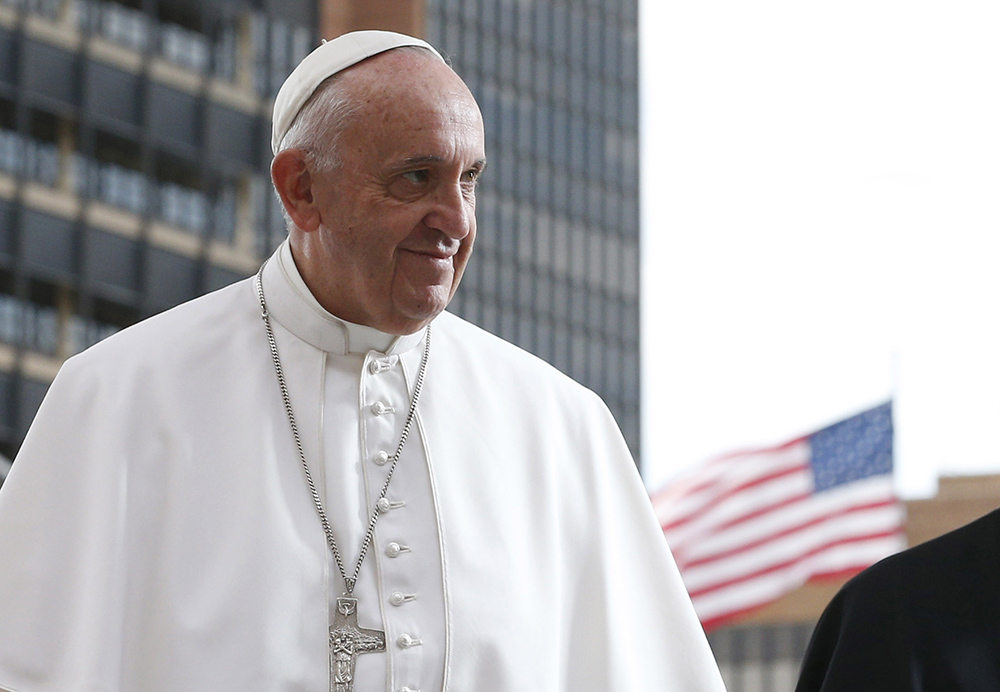
Pope Francis leaves a meeting for religious liberty with the Hispanic community and immigrants on Independence Mall in Philadelphia Sept. 26, 2015. (CNS/Paul Haring)
This month marks the 10th anniversary of the election of Pope Francis who, as the leader of the Roman Catholic Church and its 1.3 billion members, continues to capture the attention of Catholics and non-Catholics worldwide.
Several historical firsts accompanied his papal election: first Latin American, first Jesuit and first to choose the name Francis.
Along with these "firsts," Francis' pontificate has also signaled some possible "lasts," even if temporarily. His predecessor could be the last Western European pope for some time, mindful that most future popes may come from those parts of the world where Catholicism is flourishing most abundantly: Africa, Asia and Latin America. European popes may be the exception for long periods of time.
Structural reforms that Francis has introduced may well be the end, despite strong resistance, to only-clergy consultations, offices and meetings addressing church life. With the incorporation of more lay voices, we may also be witnessing the end of a centuries-old era when women were left outside and their voices were not adequately heeded on practical and doctrinal matters.
Francis has also been a strong critic of clericalism, calling it a "perversion" and a "plague." This corruption affects not only ordained ministers, but also laypeople who see themselves above others because of their social or ecclesial status, the power they yield from a given position, or the use of their resources to advance their particular interests.
For so many Catholics, it has been a gift to witness a papacy like Francis', marked by new beginnings and signaling some endings. Because of his papacy, Catholicism will be significantly different in the decades that follow.
His 10-year papacy has delineated a more credible, although not perfect, path forward to confront the reality of sexual abuse of minors by clergy within the church. The painful wounds caused by this heartbreaking scandal brought the U.S. Catholic community to its knees, both in prayer and distress. We witness today other communities in the world also reckoning with this disorder.
Although his policies have made Catholic communities throughout the world safer for all, a true conversion of hearts and structures must take place for this to never happen again.
Francis has also been adamant about giving life to the pastoral wisdom and vision of the 1962-65 Second Vatican Council. Ordained in 1969, four years after this defining gathering, Francis' ministry has been marked by the desire to engage the needs and hopes of the people of our day.
For so many Catholics, it has been a gift to witness a papacy like Francis', marked by new beginnings and signaling some endings. Because of his papacy, Catholicism will be significantly different in the decades that follow. Despite the viewpoints of critics who do not see eye to eye with Francis, this pope has ignited a renewed sense of hope.
A particular group for whom Francis's papacy has been good news is U.S. Catholic bishops. This observation may be surprising to many, particularly since it is known that a significant sector of bishops in the country, as well as Catholics in the pews, have had difficulty embracing the Jesuit pope and his calls for ecclesial reform.
Francis, however, has been good news for U.S. Catholic bishops in two clear ways.
Advertisement
First, many of the reforms that Francis has proposed for the Roman Curia and the entire Catholic world have already been tested in dioceses and parishes throughout the United States. Perhaps no other place in the world has as many lay women and men involved in ecclesial structures, education and even decision-making processes as the Catholic Church in the United States. Cultural, linguistic and demographic diversity are the order of the day in thousands of Catholic churches, schools and organizations.
Secondly, differences of perspective define the interaction among American Catholic bishops on many topics: politics, the economy, racial tensions, and the embrace of members of LGBTQ+ communities, among others. The reasons for such differences may vary from bishop to bishop, including how they and their advisers interpret biblical texts as well as church teachings. Sometimes these differences are discussed passionately in the public arena, as in the case of the reaction to San Diego's Cardinal Robert McElroy's recent proposal of what he calls "radical inclusion."
Instead of curtailing the freedom to express disagreement or to silence conversations, Francis has widely encouraged Catholics to engage in open conversations, even when these talks are charged with tension — not to cause scandal or to confuse, but to discern together and build a stronger communion.
That includes bishops. It is OK for bishops to disagree with one another, just as theologians or faithful teachers do, as long as they do it with respect and remember the ties that bind them. Regardless of what they think on certain matters, this papacy has given bishops standing to "build communion amid disagreement."
Most recently, Francis has led the Catholic world into a multiyear process of listening and dialogue called the "synodal path." It is a call to "walk together." All Catholics are invited to share our thoughts, including novel or controversial ideas, to imagine better ways of being church.
The synodal path has been proposed as a permanent way of being church. All U.S. bishops have been involved in the process in various ways, some more than others. Little involvement or no involvement at all is still participation.
Earlier this month, Boston College hosted a major national gathering where cardinals, bishops, theologians and leaders from several Catholic organizations came together to discuss the importance of listening and discerning together in a synodal spirit. The major takeaway was clear: Francis is the good news that God desired for our church here and now. He has been good news to American Catholic bishops and the rest of the Catholic community during the last decade. He is our pope.
